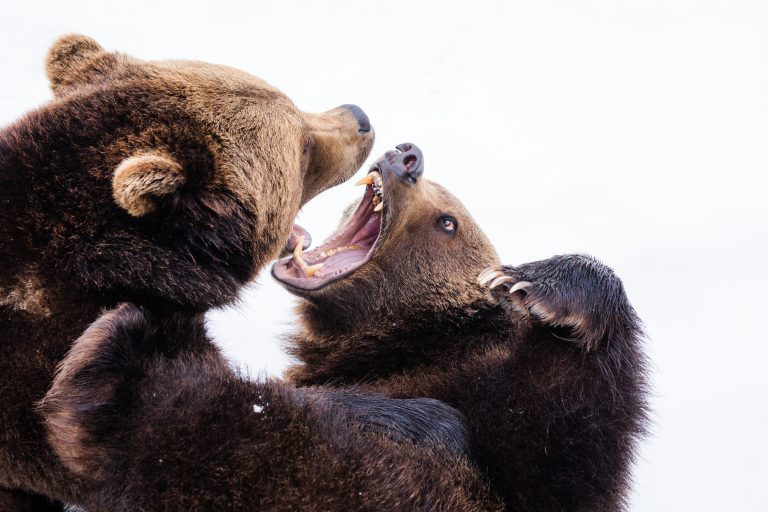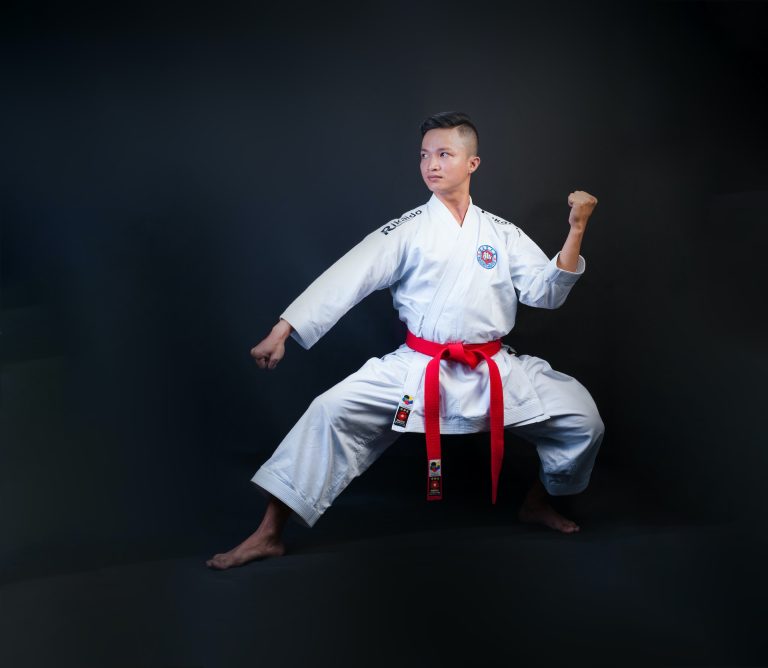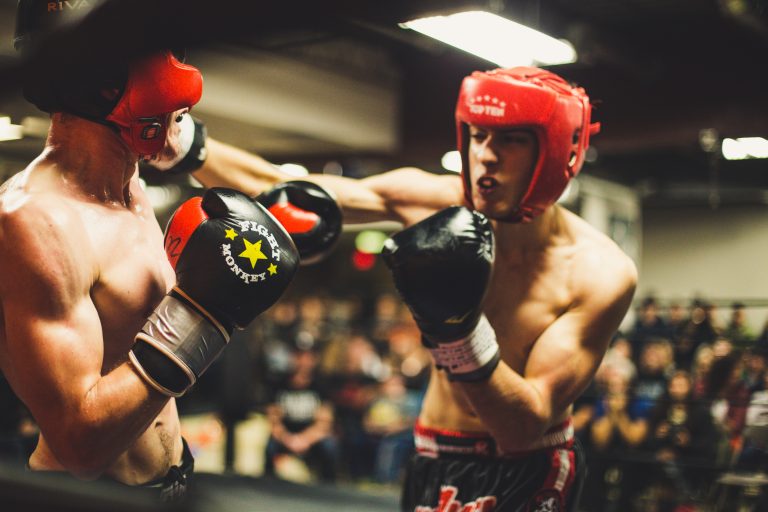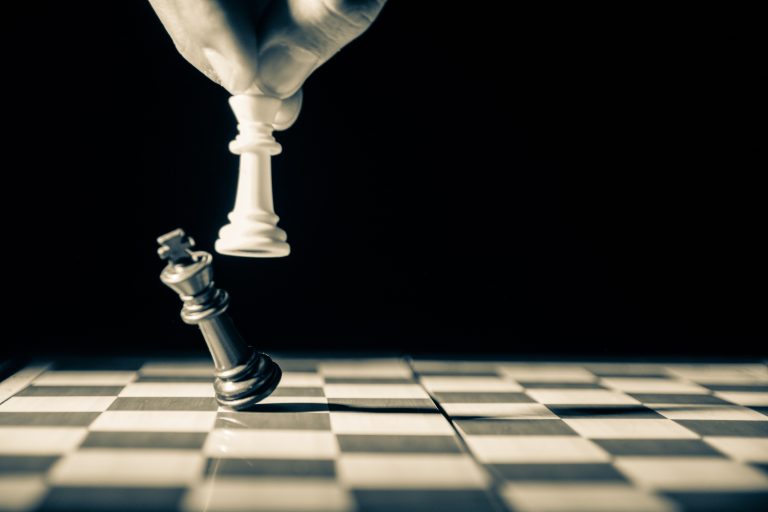What Does the Word Karate Mean and Its Significance in Japanese Culture?
Karate, also pronounced as „karate-do,“ is a traditional Japanese martial art that has rapidly grown in popularity in recent times. The word “karate” comprises two Japanese characters: “kara” means “empty,” and “te” refers to the “hand.” Combined, the word “karate” translates to “empty hand.”
In this blog post, we will delve into the origins of Karate, its history in Japan, and its significance in Japanese culture.
The History of Karate
The exact origins of Karate are not entirely known, but many historians agree that it began in Okinawa, a small island that is now a part of Japan. Before Japan annexed Okinawa in 1879, the island had a unique history and culture heavily influenced by both Chinese and Japanese traditions.
The early development of Karate occurred in secrecy, as the Okinawan people were banned from possessing weapons. Consequently, they had to find ways to protect themselves unarmed. As a result, early Karate techniques were a mixture of Okinawan and Chinese martial arts, including a few Chinese and Okinawan variants.
After World War II, Karate became popular in Japan and started to spread worldwide. Today, it is considered one of the most popular martial arts globally, applied for both self-defense and sport.
Karate in Japanese Culture
Karate was and is still influential in Japanese culture. Its history is deeply rooted in Japan’s culture and tradition. The practice of Karate incorporates values like honor, respect, self-discipline, and humility. These essential values highlight the importance of inner strength and the development of an individual’s personality.
Moreover, Karate is not just physical. The martial art teaches techniques of breathing, focus, and mental discipline. The aim of Karate is to gain balance between the body, mind, and spirit, which is vital to achieve overall wellbeing.
The Significance of “Empty Hand” in Karate
The term “empty hand” (Kara-te) in the Karate discipline has significant importance. It describes the practice of the art of self-defense without any weapon. The fundamental premise of Karate is to use the body as a weapon and not to rely on any external weapon to protect oneself.
Moreover, “empty hand” also implies that one must be disciplined and focused in their minds and calm in their approach while practicing Karate. The idea is to free the mind of any external influences and allow the body to respond solely to the situation at hand.
What Does the Word Karate Mean?
Karate is a Japanese martial art that uses quick punches and kicks to defend and attack. It is one of the most famous martial arts in the world, and people interested in martial arts often have questions about the meaning of the word „karate.“
In this blog post, we will answer some of the most frequently asked questions about the meaning of the word karate.
What is the origin of the word karate?
The word „karate“ originated in Okinawa, Japan, where the martial art was first developed. The word is a combination of two Japanese characters: „kara“ which means „empty“ and „te“ which means „hand.“ Together, the word karate means „empty hand.“
The term „empty hand“ refers to the fact that karate does not involve weapons. Instead, practitioners use their hands, feet, and other parts of their body to defend and attack.
What does the term „empty hand“ mean?
The term „empty hand“ in karate refers to the idea of a practitioner being able to defend themselves without the use of weapons. This concept is central to the philosophy of karate, which emphasizes the importance of developing one’s character and inner strength along with physical skill.
In other words, a karate practitioner is not „empty-handed“ in the literal sense, but rather, they are „empty-handed“ in the sense that they are not relying on external weapons. Instead, they develop their internal strength to be able to defend themselves and others.
What is the philosophy behind karate?
The philosophy behind karate is based on three main principles: respect, discipline, and humility.
Respect is shown to others through bowing, which is a common practice in karate. It is a way to show respect and appreciation for your opponent, instructor, and the martial art itself.
Discipline is essential in karate as it requires both physical and mental discipline. It helps to develop self-control, focus, and perseverance.
Humility is the attitude of being modest and respectful. In karate, it is essential to maintain humility and show respect to everyone, both inside and outside of the dojo.
Is karate only about fighting?
No, karate is not only about fighting. While it is true that karate techniques are used for self-defense purposes, it is much more than just fighting. Karate also emphasizes the development of physical fitness, mental discipline, and character development.
In fact, many people practice karate for non-violent reasons, such as for exercise or to develop mental discipline. The techniques can be used for self-defense, but that is not the only purpose of practicing karate.
What are the benefits of practicing karate?
There are many benefits to practicing karate. Some of the most significant benefits include:
– Improved physical fitness
– Enhanced mental focus and discipline
– Increased self-confidence
– Development of self-defense skills
– Strengthened character and values
– Stress relief through physical exercise
In conclusion, the word „karate“ means „empty hand“ and refers to the practice of using one’s body instead of weapons to defend and attack. Karate emphasizes the development of not only physical fitness but also mental discipline and character development. Practicing karate has many benefits, including improving physical and mental well-being, developing self-defense skills, and strengthening character and values.
How to Understand the Meaning of Karate
Have you ever wondered what the word „karate“ means? Perhaps you have heard it used to describe a particular style of martial arts, but do you know its origin and what it signifies? In this guide, we will explore the meaning of karate and its cultural significance in Japan. Follow these steps to gain a better understanding of this ancient martial art:
Step 1: Discover the Etymology of Karate
The word „karate“ is composed of two Japanese characters: „kara“ (空), which means „empty,“ and „te“ (手), which means „hand.“ Therefore, karate can be translated as „empty hand.“ This name was chosen because, unlike other martial arts that incorporate weapons, karate is primarily a form of unarmed combat. It relies on the strength and skill of the practitioner’s body alone to defend against attacks.
Step 2: Learn about the History of Karate
Karate has a long and complex history that dates back hundreds of years. It originated in the Ryukyu Kingdom (modern-day Okinawa, Japan), where it was practiced by local warriors as a means of self-defense. Over time, karate evolved to incorporate elements from various other martial arts, including Chinese kung fu, and Japanese judo and aikido.
In the 1940s, karate began to gain popularity in Japan, and some of the top Okinawan masters traveled there to teach their martial art. This helped to spread karate around the world and it is now practiced by millions of people worldwide.
Step 3: Understand the Philosophical Aspect of Karate
Karate is not just about physical combat. It also has a strong philosophical aspect, with emphasis placed on developing discipline, respect, and self-control. Practitioners strive to embody the principles of budo (the martial way), which include humility, integrity, and perseverance.
In addition, karate places great emphasis on kata, which are choreographed patterns of movement that simulate actual combat situations. Through the practice of kata, practitioners develop their coordination, timing, and focus.
Step 4: Find a Qualified Teacher to Learn Karate
If you are interested in learning karate, it is important to find a qualified teacher who can guide you through the basics and ensure that you are practicing safely and effectively. Look for a dojo (training hall) in your area that is affiliated with a reputable karate organization, such as the Japan Karate Association or the World Karate Federation.
It is also important to choose a teacher who has experience teaching students at your level of skill and who shares your goals and values. If possible, observe a class before signing up to ensure that the teaching style and training environment are a good fit for you.
Step 5: Practice Regularly and Stay Committed
Like any martial art, karate requires a significant amount of practice and dedication in order to master. It is important to commit to regular training sessions and to practice both your physical technique and your mental focus.
Remember that karate is a lifelong pursuit, and that there is always room to improve and grow. Stay committed to your practice, and be open to constructive feedback and guidance from your teacher and other practitioners.
In conclusion, to understand the meaning of karate, it is important to explore its etymology, history, philosophy, and practice. By following these steps and immersing yourself in the world of karate, you can gain a deeper understanding of this ancient and revered martial art.
Inhaltsverzeichnis






